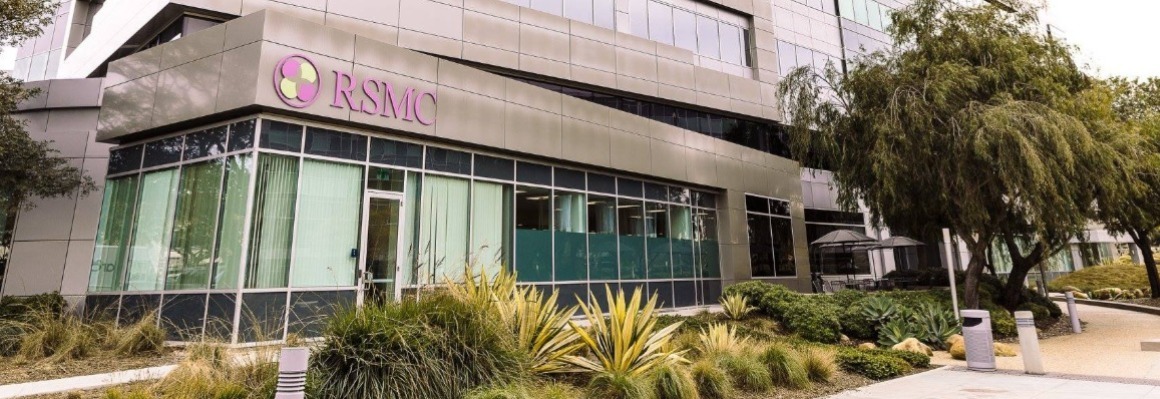How Men Can Face and Prevent Infertility: A Complete Guide
In modern society, factors such as stress, environmental pollution, and unhealthy lifestyle habits have led to a yearly increase in cases of male infertility. For men who wish to have children, understanding the causes and prevention of male infertility is crucial. Unlike female eggs, which decrease in quantity and quality with age—especially after 37, where the decline becomes more pronounced—male sperm is less affected by age. Men can continue producing sperm, and with targeted treatment over two to three months, sperm quality can improve.
The U.S. has very open reproductive policies, allowing single men and LGBT couples to legally undergo IVF with donor eggs.

Male Infertility Overview
For many men, male infertility not only leads to difficulties in conceiving but, if neglected for a long time, can further impair fertility. Male infertility can be broadly categorized into two main types: reproductive system dysfunction and structural abnormalities of the reproductive system.
1. Reproductive System Dysfunction : This includes various issues that affect sperm production or function, such as:
-
Hormonal Imbalance: Abnormal hormone levels may lead to insufficient or poorly developed sperm.
-
Ejaculation Problems: Conditions like retrograde ejaculation, where semen enters the bladder instead of being expelled, can impact fertility.
-
Immune System Issues: Sometimes the body may mount an immune response against sperm, mistakenly treating them as foreign invaders and attempting to eliminate them.
-
Sperm Quality Problems: Abnormal sperm morphology or low motility can result in infertility.
If you're planning to prepare in advance for IVF treatment, You can refer to the following article: How to Improve Sperm Quality Before Undergoing IVF?
2. Structural Abnormalities of the Reproductive System: Structural issues involve physical blockages in the reproductive organs that hinder the normal movement or release of sperm.
-
Vas Deferens Obstruction: This may result from surgical complications, infections, or congenital abnormalities, preventing sperm from passing through.
-
Varicocele: Enlargement of the veins in the spermatic cord can disrupt normal blood flow, affecting testicular temperature and sperm production.
-
Undescended Testes: If the testes fail to descend into the scrotum during fetal development, it can impact their function and fertility.
For these structural issues, modern medicine offers various surgical options designed to restore the normal structure and function of the reproductive organs. Regarding reproductive system dysfunction, lifestyle adjustments and medical interventions are key to improving sperm quality.
In addition to the factors mentioned above, there is another silent threat to male fertility: azoospermia, which can be categorized as obstructive or non-obstructive. Obstructive azoospermia is caused by blockages in the reproductive tract, while non-obstructive azoospermia is usually due to testicular dysfunction or hormonal issues. Diagnosing azoospermia often requires multiple semen analysis to confirm the absence of sperm. Additionally, hormone level tests, genetic testing, or testicular biopsies may be needed to identify the cause of azoospermia.
Further reading:Understanding Male Infertility: Vas Deferens Obstruction and Azoospermia.

How to Prevent Male Infertility?
For men who are planning to have children or preparing for sperm collection during IVF treatments, there are several lifestyle adjustments that can help prevent male infertility:
-
Maintain a Healthy Weight: Obesity can negatively impact hormone levels, which in turn can affect sperm count and motility. Regular exercise and a balanced diet can help improve sperm quality.
-
Eat a Healthy Diet: Consuming foods rich in antioxidants, such as fruits and vegetables, can boost sperm health. The Mediterranean diet is a good reference for improving overall fertility.
-
Avoid Excessive Heat Exposure: Frequent use of saunas or hot baths may temporarily reduce sperm count. Additionally, avoid prolonged laptop use on your lap to prevent raising the temperature around the testicular area.
-
Quit Smoking and Limit Alcohol Intake: Both smoking and excessive alcohol consumption can adversely affect sperm quality. If you drink, do so in moderation.
-
Manage Stress: Stress can interfere with sexual function and the hormones needed to produce sperm. Practicing stress-reducing techniques such as meditation or regular exercise can help improve fertility.
-
Avoid Recreational Drugs: Drugs like cocaine, benzodiazepines, heroin, methamphetamine, oxycodone, and ecstasy can negatively impact reproductive health.
-
Reduce Exposure to Environmental Toxins: Pesticides, heavy metals, and industrial chemicals may harm sperm quantity and quality. Proper protective gear should be worn when handling these substances.
By incorporating these lifestyle changes, future fathers can significantly enhance their fertility and lay a strong foundation for parenthood. At RSMC, we ensure the health of your future child by performing genetic screening (CGT or Invitae302) if you are using an egg donor from our egg bank. This allows us to compare your genetic report with the donor’s to safeguard your child’s health. Additionally, once the embryos reach the fifth day of development, we conduct PGS genetic testing to confirm the normality and quality of all embryos, ensuring they are free of chromosomal abnormalities.
Further Reading:Can Older Men Still Have Healthy Children?
How to Address Male Infertility?
When facing male infertility, modern medical advancements offer various treatment options, including In Vitro Fertilization (IVF) and Intracytoplasmic Sperm Injection (ICSI), which can effectively address the following issues:
-
Hormonal Imbalances and Functional Disorders: Hormonal therapy can regulate hormone levels and improve sperm production. For issues with sperm quality or motility, ICSI can be used to inject sperm directly into the egg, increasing the chances of fertilization.
-
Structural Abnormalities in the Reproductive System: Surgery can remove blockages in the vas deferens or ejaculatory ducts, restoring normal sperm transport. In cases of obstructive azoospermia, sperm can be extracted directly from the testicles or epididymis through surgery.
-
Azoospermia (Absence of Sperm): Obstructive azoospermia can be treated surgically to unblock the sperm passage. In cases of non-obstructive azoospermia, sperm extraction is possible if the testicles are still producing sperm.
In summary, as long as sperm can be successfully retrieved, men do not need to worry about infertility. Taking the first step to confront male infertility is key to solving the issue. With advanced IVF techniques, along with the fact that male sperm quality declines less rapidly than female fertility, older men can easily complete their family plans through IVF. Many single men have also successfully had children through RSMC's egg donation and surrogacy programs.
If you're unsure whether to choose IVF or ICSI to address male infertility, You can refer to the following articles:Assisted Reproductive Technology Explained: A Comparison of IVF and Artificial Insemination Procedures and Suitable Candidates

RSMC Helps You Address Male Infertility with Ease
With over 30 years of experience in infertility treatment, RSMC Fertility Center in the United States is here to assist you. For patients with conditions like vas deferens obstruction or azoospermia, a common question is whether to undergo reconstructive surgery before pursuing assisted reproductive methods, such as IVF, or to proceed directly with testicular sperm retrieval.
There’s no universal answer. Doctors carefully consider the individual’s infertility cause, medical reports, the extent and location of the obstruction, age, and family planning goals. With all these factors in mind, they offer personalized guidance to determine the best approach. If the most challenging outcome occurs—where the testicles cannot produce sperm—RSMC can support you with options such as donor sperm IVF or surrogate arrangements, helping you fulfill your dream of parenthood with peace of mind.
As one of the top three legal fertility centers in the U.S., RSMC offers a comprehensive database of surrogate mothers and a diverse egg bank. We take thorough care in screening surrogate candidates, requiring stringent medical evaluations, background checks, criminal record screenings, and psychological assessments, with a selection rate of just 4% to ensure the highest standards for your child’s future. Once you are matched with the right surrogate, attorneys will handle all parental rights, providing you with seamless, fully Mandarin-supported, and 24/7 service for complete confidence in the process.

Doctor Profile
Dr. David Harari | RSMC Medical Director and President of the Medical Group
Dr. David Harari earned his medical degree from the Medical College of Georgia and completed his internship at the Medical College of Georgia. He then completed his residency at Mercy Hospital Medical Center. With over 30 years of clinical experience, Dr. Harari currently serves as President of the San Diego Obstetrics and Gynecology Society, which includes more than 400 specialized OB-GYN practitioners.
In his practice, Dr. Harari is deeply committed to respecting each patient’s personal needs and providing expert, individualized treatment plans, working closely with them to achieve their goals. He believes in the importance of open communication and understanding between doctor and patient and is dedicated to sharing his medical experience to offer the most professional advice and guidance.
Other
-
2025/03/13others
Can Vitiligo Be Cured With Reproductive Technology?
-
2025/02/24others
What are the reasons behind failed blastocyst culture?
-
2024/11/20others
A Must-Read for Expectant Mothers: All About Down Syndrome Screening!



